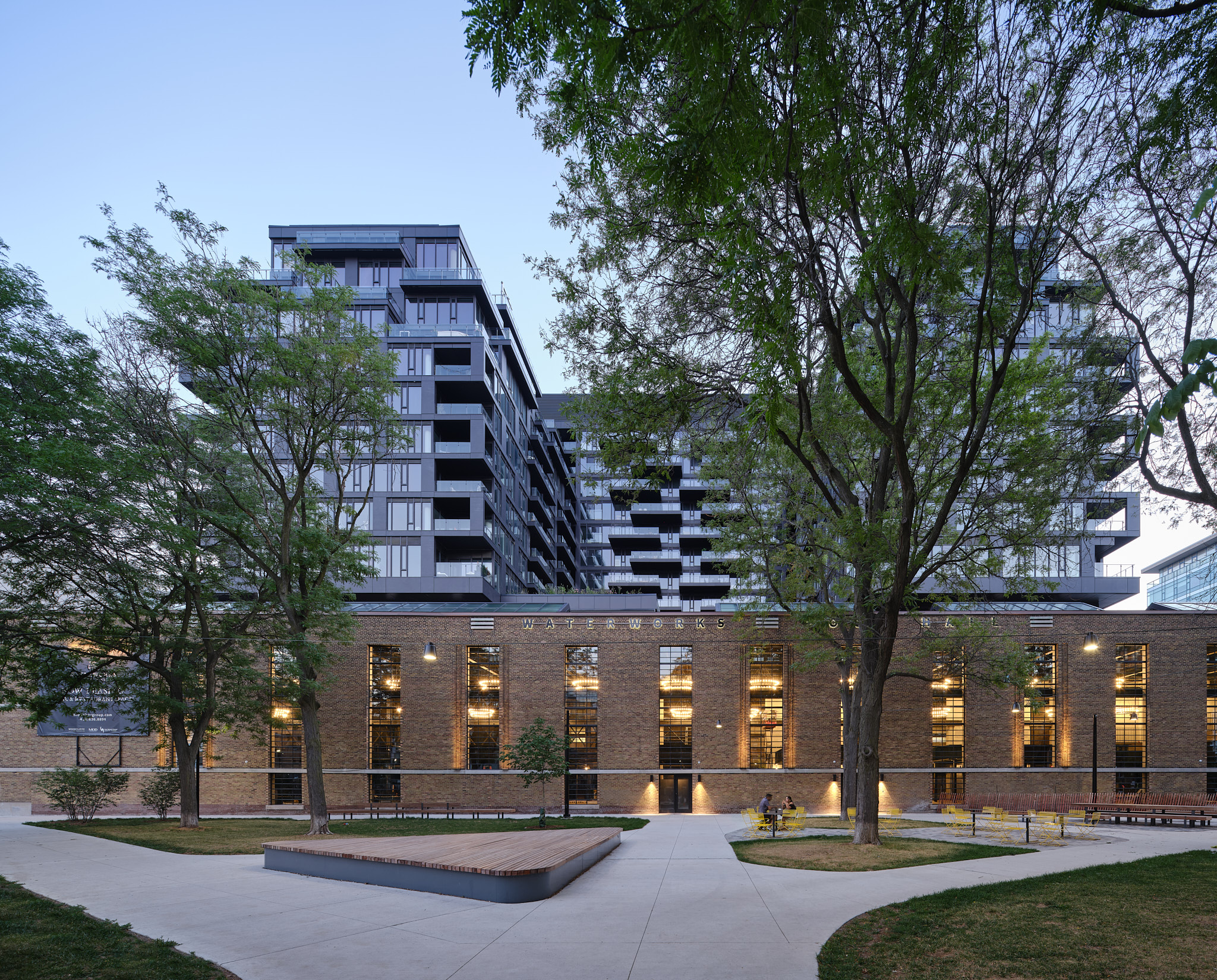A Landmark Reborn
Standing quietly behind a sleek new facade on Richmond Street West is a piece of Toronto’s living history: the Waterworks Building. What began as a 1930s public works facility has been thoughtfully transformed into one of King West’s most dynamic new hubs, blending culinary excellence, wellness, and community under one roof. Waterworks Food Hall stands as a masterclass in preserving heritage while propelling a neighborhood forward, offering not only history and design, but the comfort and culture of a true third place.
From Utility to Culture: The Story Behind Waterworks Food Hall
Constructed between 1930 and 1932 by then-City Architect James John Woolnough, the Waterworks Building originally supported Toronto’s vital water infrastructure. Its Art Deco influences and striking red-brick facade made it more than just a functional site, but a testament to civic pride and urban beauty.
And even in its original conception, it was more than pipes and pumps. Situated next to St. Andrew’s Playground Park, Toronto’s first city-owned playground, the building played an early role in shaping the social and spatial fabric of the community. It was infrastructure that was part of how the city lived, worked, and gathered.
A Sensitive Transformation: Preserving Soul While Building Community
Fast forward to today, and a new vision for the Waterworks has taken root. Spearheaded by MOD Developments and Woodcliffe Landmark Properties, the adaptive reuse project took care to restore rather than erase. From the preserved industrial bones to the reimagined interiors, the space reflects both where King West came from, and where it’s going.
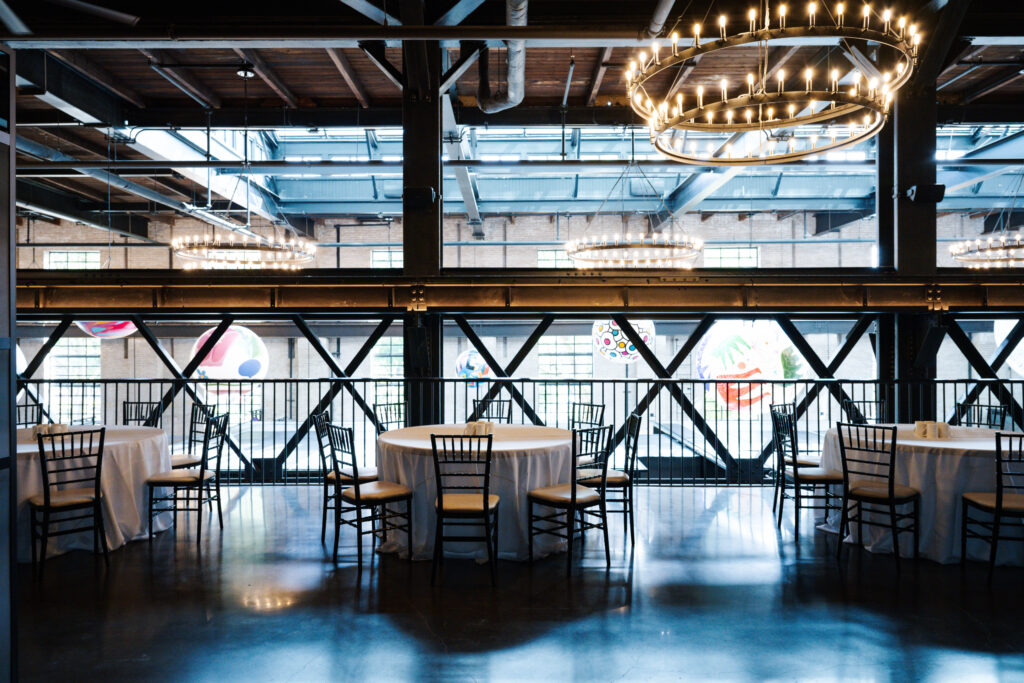
Today, the building is home to the McDonald Family YMCA, residential living, and a European-style food hall. But it’s the way the space is used that makes it special. This isn’t just a place to stop in, but a place to stay. To meet. To return to. Whether you’re grabbing a quick espresso, working remotely at a shared table, or catching up with friends over wine, the Waterworks has become a daily presence in the lives of locals.
Waterworks Food Hall Today: A True Third Place for Toronto Locals
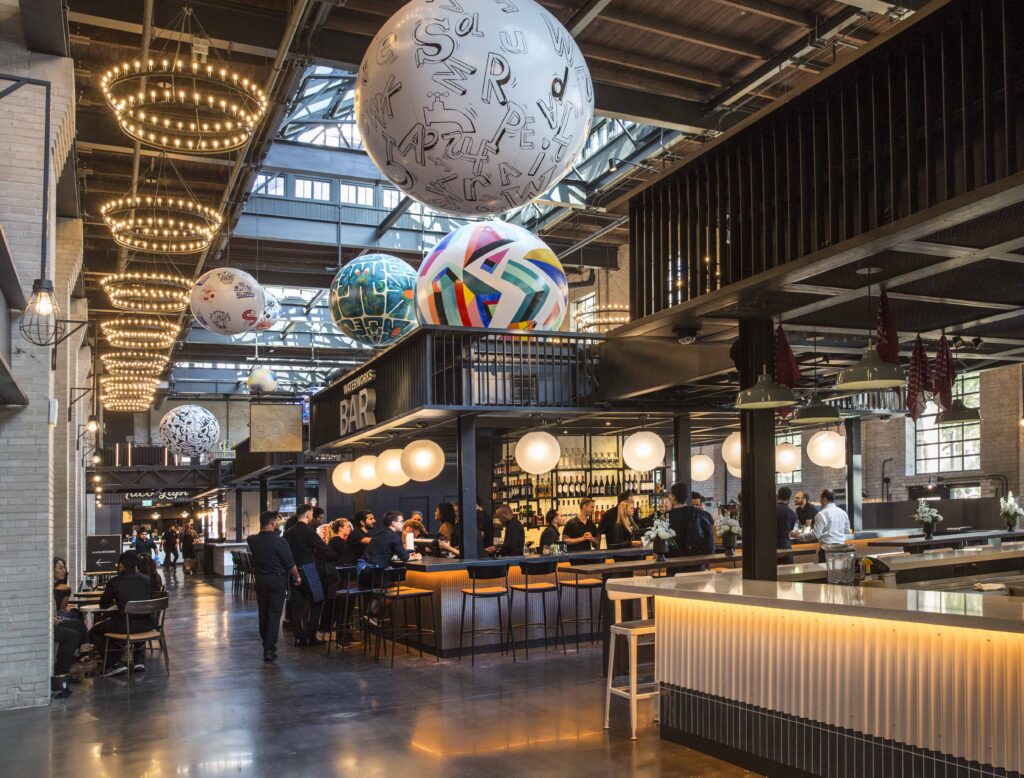
During weekday mornings, the Waterworks Food Hall is a quiet retreat. Laptops open, coffees in hand, early risers take advantage of the gentle buzz and open seating. By midday, it transforms: filled with lunchtime crowds from the neighborhood’s offices and studios, before shifting again into an ambient, lively dining destination well into the evening.
Beyond the main hall, different micro-spaces cater to different needs: a speakeasy-style lounge tucked into the back offers a cozy, moody reprieve. Civil Parks and Grape Witches, each with their own patios and personalities, offer open-air seating with a local wine, creative cocktail or seasonal dish in hand. It’s not designed to rush you out, it’s meant to let you stay awhile.
More than just a beautifully restored building, the Waterworks Food Hall is a case study in third place thinking: design that encourages flow, seating that supports conversation, and offerings that span from solo rituals to social connection.
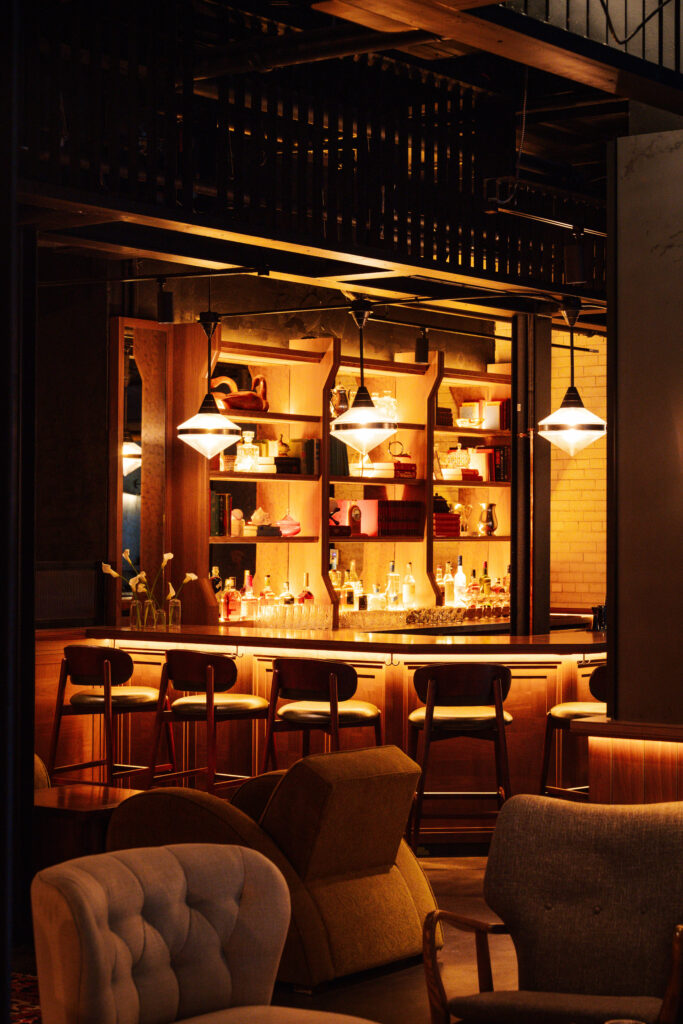
Why Waterworks Food Hall Matters: Where History Fuels Modern Life
The revival of the Waterworks Building is part of a broader shift: a cityscape that acknowledges its past even as it reshapes its future. As King West grows into a modern wellness corridor, from boutique fitness studios to nutrient-forward cafés, the Waterworks Food Hall stands as a reminder that authentic community doesn’t need to be invented. It can be rediscovered and designed into everyday life.
Where History and Modern Life Intersect
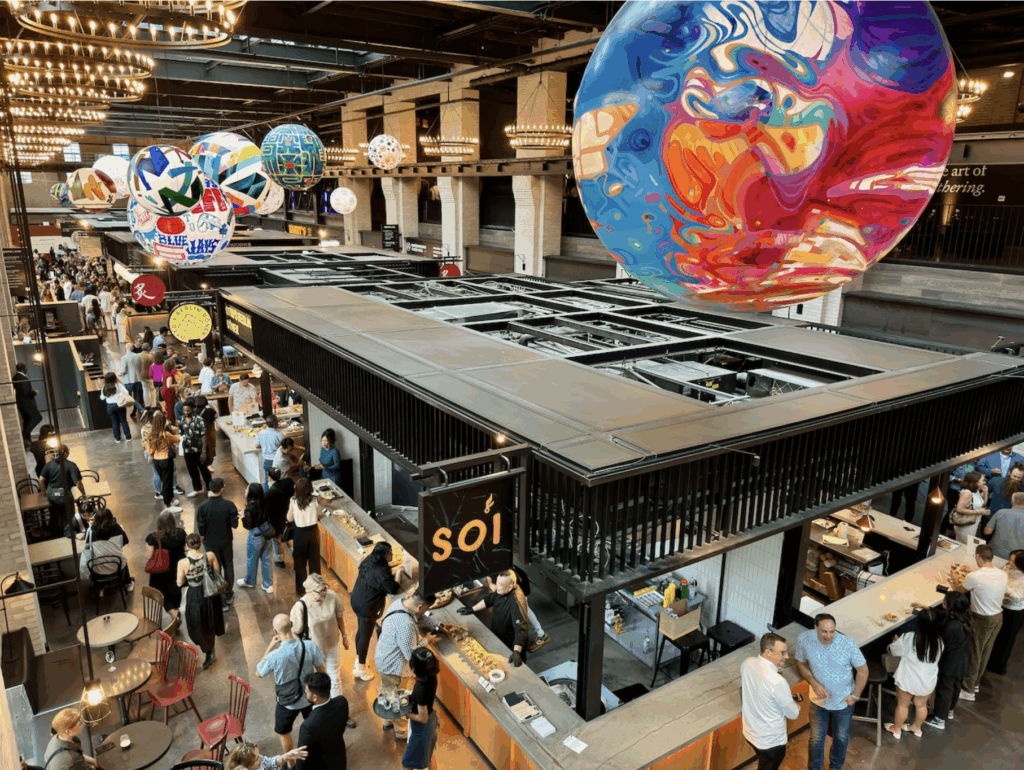
Waterworks Food Hall proves that cities can grow without losing their soul. In a neighborhood often celebrated for cutting-edge culture, it’s a quiet yet powerful anchor to Toronto’s working-class roots. And in its new chapter as a café, food hall, fitness center, and gathering space, it continues its original mission: to serve the city. Not just through services, but through presence, comfort, and community.
Discover the Ace Hotel across the street, another third place worth the visit.
